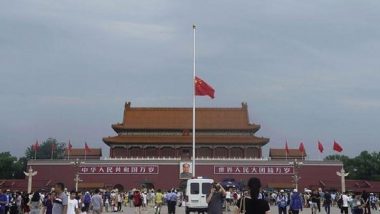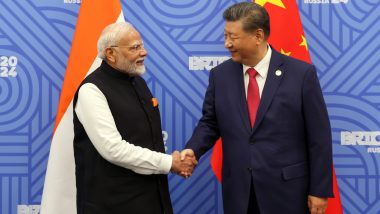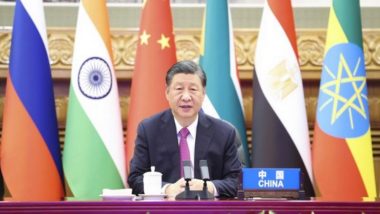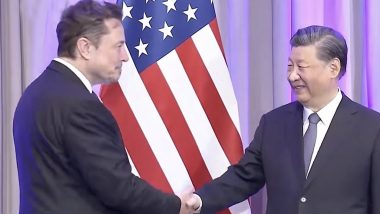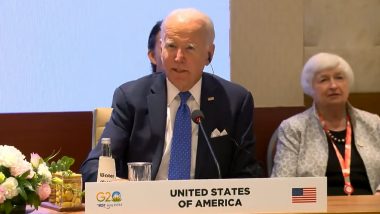Beijing, July 29: The Chinese flag was flown at half-mast at Tiananmen Square on Monday and President Xi Jinping paid his final respects to late premier Li Peng, a hardliner in the crackdown on protesters who occupied the Beijing landmark in 1989. Li, who died of an unspecified illness aged 90 last week, was reviled by activists as the "Butcher of Beijing" for his role in the military's brutal suppression of pro-democracy demonstrations on June 4, 1989. But he was eulogised in state media following his death as a "tested and loyal communist soldier" who "took decisive measures to stop the turmoil" 30 years ago.
At Tiananmen on Monday, soldiers at the daily flag-raising ceremony raised the red banner to half-mast as hundreds of tourists looked on under rainy skies in the capital. "He was a man of strong will," said a visitor from central Shaanxi province. One Belt One Road: EU Red-flags China's Attempt to 'Takeover' Region.
Xi, former president Jiang Zemin, and other top Communist Party leaders bowed in front of Li's body as it lay in the middle of an opulent flower arrangement at the Babaoshan Revolutionary Cemetery in Beijing, with a hammer-and-sickle flag partly covering the body, according to state television images. Xi and the other officials then shook hands with members of Li's family. Xi's immediate predecessor, Hu Jintao, was not in Beijing but sent a wreath to express his condolences, according to the official Xinhua news agency.
Li's body was cremated, according to Xinhua. The Chinese national flag was also flown at half mast in Hong Kong, where large gatherings are held every year in memory of the victims of the 1989 crackdown.
The former British colony has been rocked for two months by increasingly violent protests that have directly challenged Beijing's authority over the global financial hub.
The flag was also flown at half-mast at the imposing Great Hall of the People next to Tiananmen square, as well as other government buildings, airports and Chinese embassies. Li held the premiership for 11 years until 1998. He was chairman of China's rubber-stamp parliament until 2003.
Though the decision to send in the troops was a collective one under paramount leader Deng Xiaoping, Li was widely held responsible for the bloody crackdown. It trailed him to the end of his official political career in 2003.
(The above story first appeared on LatestLY on Jul 29, 2019 05:17 PM IST. For more news and updates on politics, world, sports, entertainment and lifestyle, log on to our website latestly.com).







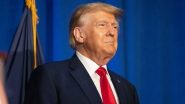





 Quickly
Quickly









